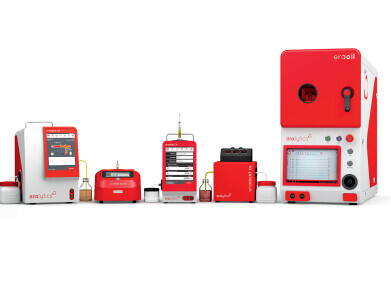Analytical Instrumentation
Could Lower Oil Prices Drive Consumption?
Aug 23 2020
While it seems counterintuitive, the idea that the COVID-19 pandemic will trigger a spike in global oil demand is gaining momentum. Some experts assert that despite the slump in economic growth and a significant shift in consumer behaviour, oil consumption will ultimately grow as a result of lower oil prices.
A shift in consumer behaviour
Usually, economic growth is a key driver of oil consumption. Income is also an important factor, with industries such as road and air travel fuelling consumption when people have money to spend. That said, price also plays an important role in consumption. When prices are high people tend to travel less. When prices drop, consumers don’t think twice about filling up the tank with petrol or booking a plane ticket. The pandemic has seen oil prices slump to historic lows and when life starts to return to normal, some analysts say demand for cheap fuel could be stronger than ever.
Price slump could boost economic growth
Oil prices also have major sway when it comes to economic growth. When oil is expensive companies don’t have the scope to expand and grow. Similarly, when prices slump new opportunities arise. Given the sharp drop in oil prices that’s seen WTI drop from almost US$60 a barrel in December 2019 to around US$40 a barrel in August 2020, some experts predict the global economy could be on-track to grow by around 1% this year. This would translate to a 250-500 tb/d increase in global oil demand.
Travel bands driving downward trend
Of course, not all experts agree. A recent report from the IEA wasn’t as buoyant, warning the air travel industry is recovering more slowly than expected due to increased lockdowns. In its monthly Oil Market Report, the organisation refers to the trend as a “stalling of mobility” and warns “the aviation and road transport sectors, both essential components of oil consumption, are continuing to struggle.”
This directly impacts global oil demand, with the agency saying consumption will drop by 8.1 million barrels a day in 2020. This is 140,000 barrels lower than the forecast made last month and indicates the industry may not be as healthy as some experts make out.
Given the volatile state of the oil and gas industry, maximising efficiency and minimising downtime has never been more important. ‘How Minimising Unplanned Downtime can Boost Plant Safety’ offers more information on the cutting-edge technologies being used to improve both safety and sustainability.
Digital Edition
PIN 25.1 Feb/March
March 2024
In This Edition Safety - The technology behind the ION Science Tiger XT - Safety with ammonia and LOHCs as hydrogen carriers Analytical Instrumentation - Discussion on new tribology te...
View all digital editions
Events
Apr 28 2024 Montreal, Quebec, Canada
Apr 30 2024 Birmingham, UK
May 03 2024 Seoul, South Korea
May 05 2024 Seville, Spain
May 06 2024 Riyadh, Saudi Arabia


















